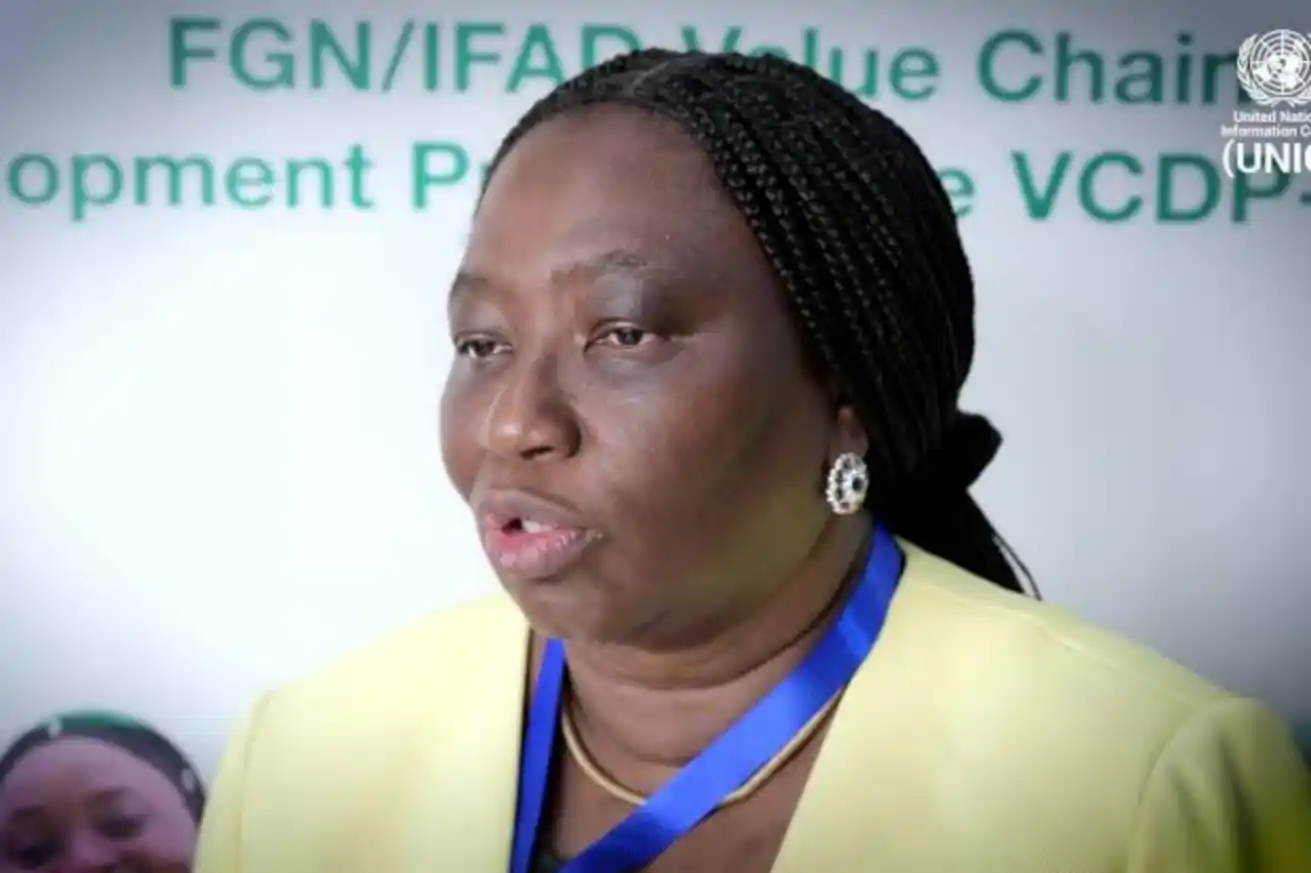Nigerian smallholder farmers have earned over $40 million in agricultural sales under the Federal Government and International Fund for Agricultural Development (IFAD) co-funded Value Chain Development Programme (VCDP), according to the IFAD Country Director, Mrs Dede Ekoue.
Ekoue made this known on Tuesday in Abuja during the inception workshop of the 12th Joint Federal Government of Nigeria (FGN) and IFAD Supervision Mission of the VCDP.
The $334 million programme, jointly financed by IFAD and the Federal Government, has been instrumental in transforming smallholder agriculture, particularly in rice and cassava value chains.
Ekoue described the initiative as a demonstration of Nigeria’s commitment to strengthening food systems, boosting productivity, and improving rural livelihoods. She said the programme had delivered visible results that contribute to national and continental agricultural goals.
Highlighting the key achievements, she explained that rice yields among participating farmers had increased to between 5 and 6 metric tonnes per hectare, compared to the national average of 2 to 2.5 tonnes. She noted that through the Commodity Alliance Forum (CAF), which serves as the programme’s public-private-producer partnership platform, farmers generated more than $40 million in sales from 878 formal agreements with off-takers, benefitting over 16,000 rice farmers across participating states.
“These achievements reflect the power of collaboration between federal and state governments, farmers, communities, the private sector, and IFAD,” Ekoue said. “We are proud to see how the VCDP aligns with President Bola Tinubu’s Renewed Hope Agenda, the National Agricultural Technology and Innovation Policy (NATIP), and the AU Kampala Declaration on agricultural transformation.”
She further revealed that over 39,000 beneficiaries, including 12,000 youth and 22,000 women, had been trained in income-generating activities, enabling them to move from subsistence farming to commercial agriculture. Ekoue also highlighted several sustainable innovations introduced through the programme, such as the conversion of agricultural by-products into briquettes and animal feed, promoting environmental sustainability and creating new business models for women and youth.
According to her, IFAD had continued to support the inclusion of climate-smart agricultural practices, digital weather and market information tools, and investments in irrigation, land development, and erosion control through the Adaptation for Smallholder Agriculture Programme (ASAP).
To further consolidate progress, she announced that IFAD had approved a two-year extension for the VCDP to strengthen its impact and achieve new milestones. “This 12th supervision mission will assess our progress, address implementation challenges, and shape the next phase of the programme,” she added.
Speaking at the event, Dr Fatima Aliyu, the National Programme Coordinator of VCDP, said the programme had proved that smallholder farming could be both profitable and sustainable, challenging long-standing beliefs that only large-scale farming could drive agribusiness growth.
“When you go to any VCDP state, you will see ownership; you will see that lives have been changed. Our farmers are employers of labour, they are creditworthy, and they have proven that smallholder farming can deliver economic scale,” Dr Aliyu said.
She noted that the VCDP’s work directly supports the Federal Government’s Renewed Hope Agenda, which prioritises social inclusion, food security, and poverty reduction, all aligned with the Sustainable Development Goals (SDGs).
Also speaking, Mrs Iluromi Adebola, Director of the Federal Department of Development Partners Projects (FD-DPP) at the Federal Ministry of Agriculture and Food Security, described the VCDP as one of the government’s flagship agricultural initiatives that continues to deliver measurable success across several states.
She said the programme, which is being implemented in nine states — Niger, Nasarawa, Kogi, Benue, Enugu, Ebonyi, Taraba, Anambra, and Ogun — has achieved significant progress in productivity, market linkages, and the inclusion of women and youth in the agricultural value chain.
“The testimonies of beneficiaries and the visible transformation in the field are strong evidence of success. The Federal Ministry remains deeply committed to sustaining and consolidating these achievements and ensuring that the programme’s impact reaches more households across Nigeria,” Adebola stated.
She reaffirmed the Federal Government’s commitment to maintaining the VCDP partnership with IFAD, expressing confidence that with continued collaboration, the programme would drive economic diversification, food security, and rural transformation across the country.
The supervision mission, which runs through October 31, is expected to evaluate progress, share best practices, and make recommendations to improve implementation and expand the programme’s impact in the coming years.

